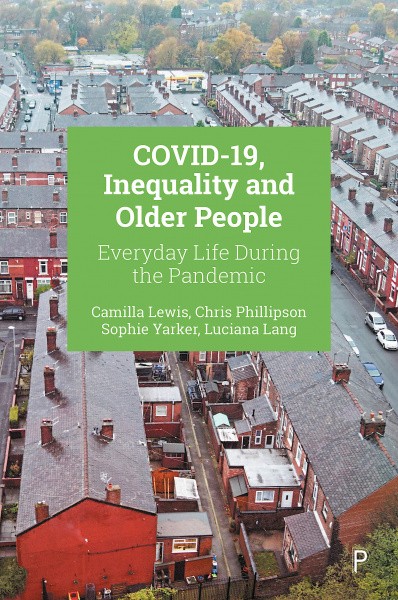Policymakers must learn from the impact of COVID-19 on older people in order to tackle the deep-seated inequalities exposed by the pandemic, according to a new publication written by a group of experts from The University of Manchester.
In the period between March and December 2020, twice as many years of life were lost in the poorest areas of the country compared with the wealthiest. Ethnic inequalities were a feature across all waves of the pandemic, with rates of death highest amongst the Bangladeshi and Pakistani communities.
Although the effects of COVID-19 have been examined in various ways, its broad social and cultural factors have been given much less consideration in research. Despite the burgeoning literature on the pandemic, there are few detailed accounts of the experience of everyday life under COVID-19.
The authors drew upon the experiences of a diverse group of 102 people aged 50+ from Greater Manchester, as well as 21 community organisations collected over a 12 month period during the pandemic.
They found that older people were disproportionately affected by the emergence and spread of COVID-19, whether in hospital, the community or in care homes. More than 80% of deaths related to the virus between 2020 and 2021 occurred among people aged 60 years or older.
COVID-19 created new pressures for people of all ages throughout the world, but it raised particular concerns for older age groups. The book highlights the challenges older people faced when forced to ‘stay apart’ from family and friends and identifies changes affecting people over the course of three successive lockdowns.
For older people themselves, there were a variety of reactions to the pandemic. Few were left untouched by its profound effects on the routines and relationships which make-up daily life. The book conveys the challenges and responses across the different organisations and groups of older people interviewed, examining issues such as the impact of social distancing, the effects of shielding, and the experience of social isolation.
COVID-19 amplified existing insecurities, as people struggled to cope with long-term illnesses in the context of pressures from reduced health and social care support. Reflecting this, the research suggests the pandemic has introduced new vulnerabilities, exacerbating further the precarious lives of different groups of older people.
The authors raise concerns about the negative attitudes towards older people which arose during the pandemic, and which have continued to influence debates around a range of social and financial issues.
They recommend developing a ‘community-centred approach’ in responding to future pandemics, with a focus on the importance of enhanced funding for community organisations, supporting leaders within neigbourhoods, and providing advocates for those who have difficulty securing the services they need.
“This book provides a detailed account of how the daily lives of older people were affected by COVID-19. It highlights the variety of responses from groups and neighbourhoods across Greater Manchester and documents the important work of voluntary and community organisations and the crucial role which they played in providing support to vulnerable groups. The book makes a case for working directly with communities, both in preventing another pandemic and addressing the injustices exposed by COVID-19,” said Camilla Lewis.







